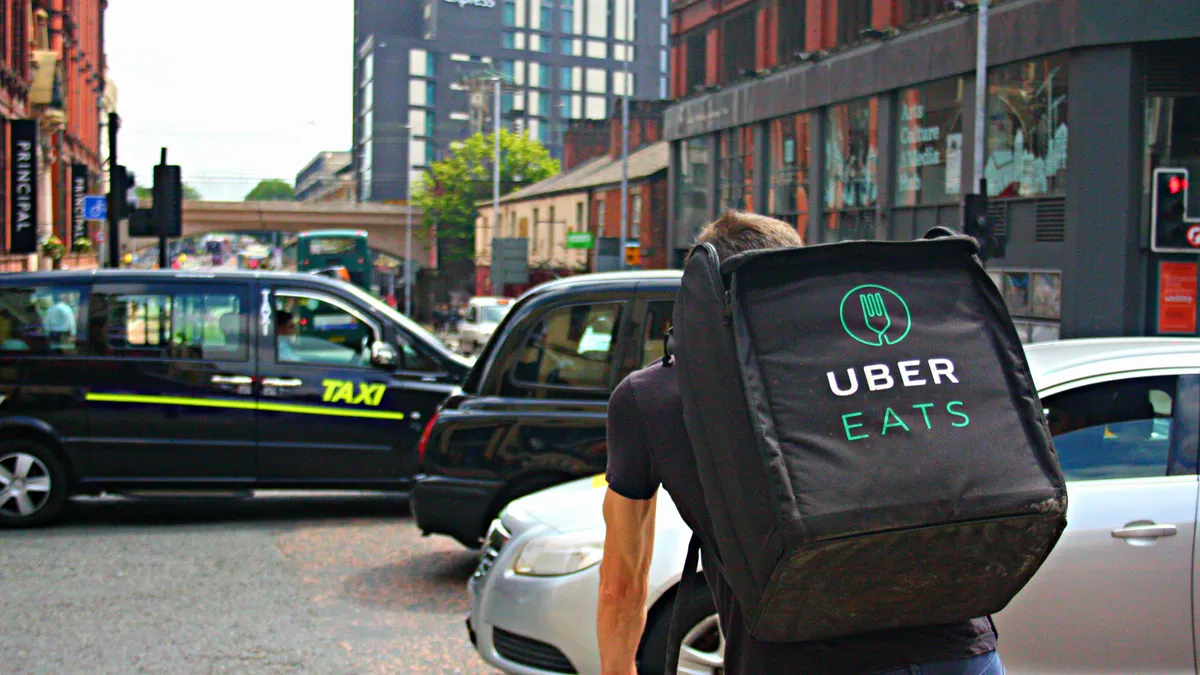Dive Brief:
- Uber Eats is testing a program in India that allows restaurants to bundle several food items together and sell them at a discounted price in exchange for promoted placement in the app’s “specials” section, Tech Crunch reported.
- Uber told the publication that the goal is to “take the friction out of ordering by giving people pre-set meals at a better price prominently available in the app.”
- India’s food delivery industry is estimated to be worth around $700 million.
Dive Insight:
Uber Eats didn’t jump into the India market until last year, but now it’s trying to get a leg up on the intense competition — including Google’s Areo — in the market. According to research firm RedSeer, India’s online food delivery market grew at 150% in 2016 alone.
As TechCrunch reports, Uber Eats is essentially adding its own native advertising feature that could — on paper, at least — benefit not only Uber, but also restaurants and consumers. For Uber, the move should generate more users who are purposefully seeking deals and become more of a habit for those consumers. For restaurants, they could use the feature to move oversupply or low-selling items, as well as promote high-margin items. Companies will also likely benefit from an elevated position on a popular app. On the consumer side, users will be able to track down deals in one convenient spot thanks to the promotion.
Most brands are used to the pay-to-play model thanks to the growth of digital platforms like Google Ads. But unlike retailers, which have had to contend with these models for placement on Amazon and Google and even voice assistants, this in-app model is new for the restaurant space. Restaurants have good reason to pay for better visibility in a competitive industry, especially as Uber Eats eyes even more growth in the market and beyond.
But there could be some challenges. For starters, it’s unclear who will be footing the bill. TechCrunch simply states “in some cases restaurants foot the cost of the discount, while in others Uber pays for the discounts.” What is clear is that restaurants are quickly becoming commission-fatigued in the market. According to Quartz India, some restaurants in the state of Kerala have even started boycotting aggregates, including Uber Eats, in large part because of hefty charges. Uber Eats takes a 33% commission in India.
If this is a revenue generator for Uber, there's no reason not to believe the feature won't roll out to more markets. The bigger question is whether or not restaurants will be willing to pay even more or if additional costs will cause more restaurants to wean off aggregates, like some companies are starting to do.













